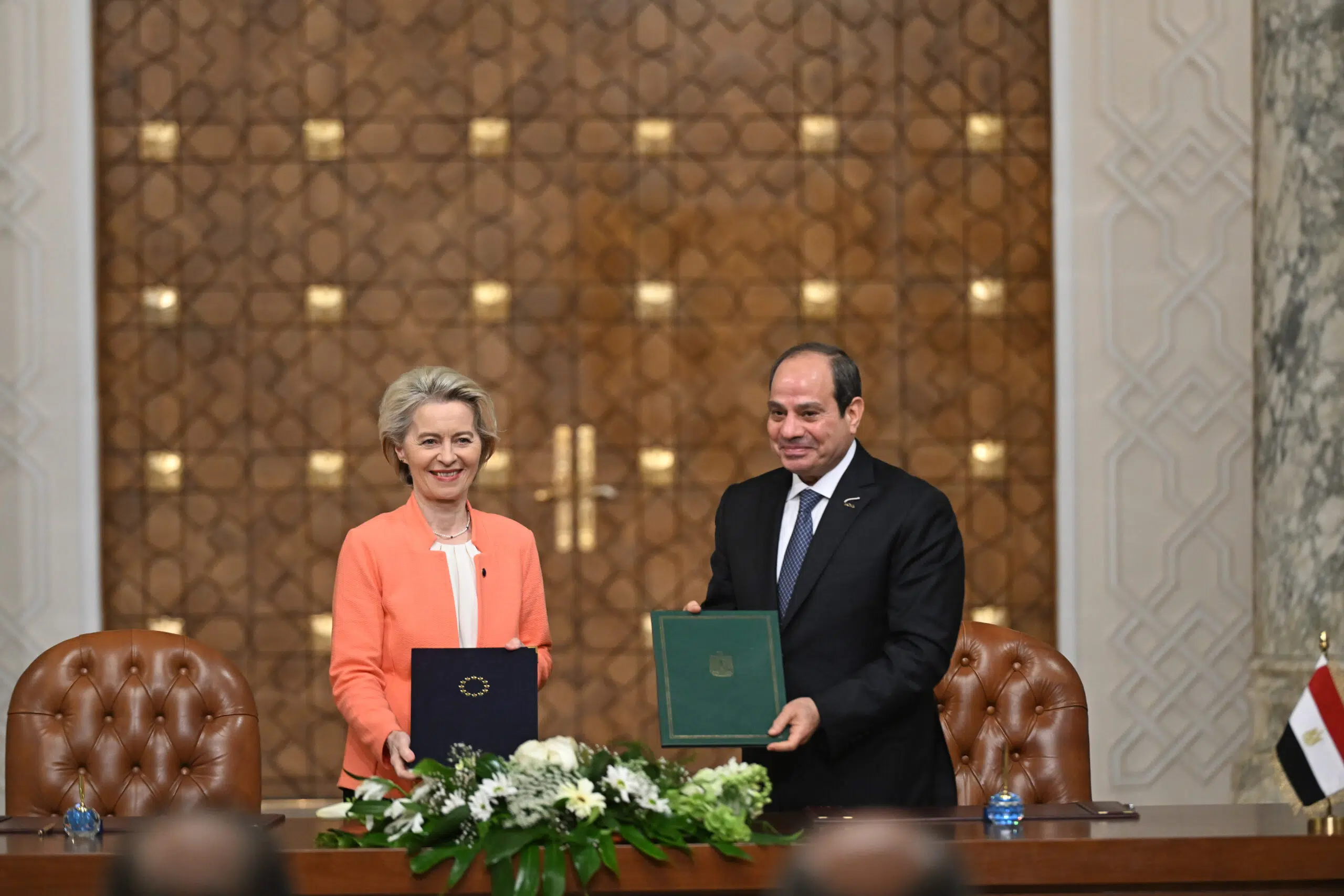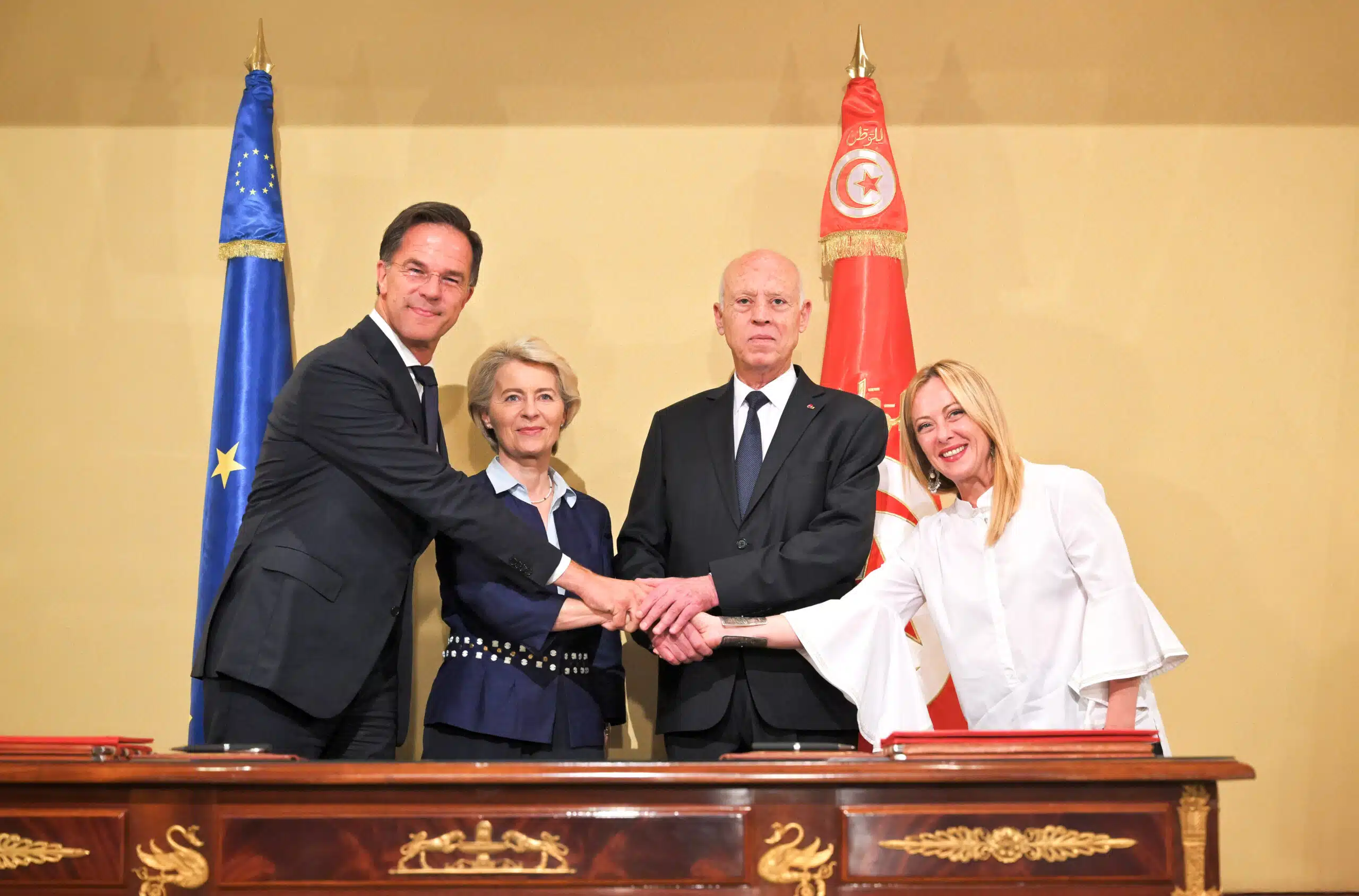Brussels – A “historic milestone,” Ursula von der Leyen called it. An agreement that Brussels pledges to honor with a €7.4 billion financial and investment package over four years. On Sunday, March 17, the President of the European Commission, accompanied by a host of EU heads of state and government, signed the most economically onerous memorandum of understanding ever with Egypt.
In the presence of Abdel Fattah al-Sisi, in addition to von der Leyen, Italian Prime Minister Giorgia Meloni, Austrian Chancellor Karl Nehammer, the president of Cyprus Nikos Christodoulides, Belgian Prime Minister Alexander De Croo and Greek counterpart Kyriakos Mītsotakīs. “The presence of six European leaders today shows how deep the value of our relations is,” von der Leyen stressed to the Egyptian president. A format – the one dubbed Team Europe – already seen at the signing of memorandums of understanding with Tunisia and Mauritania. The difference is that the one signed in Cairo includes a much more substantial funding plan than the 1,2 billion for Tunis and the 200 million for Nouakchott.

There are six main pillars, six “areas of mutual interest” for the EU and Egypt. Intense political dialogue, macroeconomic stability, sustainable investment and trade, migration and mobility, security, and human capital development. Each then prioritizes according to their political sensitivities: Giorgia Meloni pointed out that, just as in the case of the partnership with Tunis, this “model” of a comprehensive agreement with African countries is “the best way to deal with the problem of illegal immigration and combat human traffickers.” It is the will to “reaffirm the right of citizens not to migrate to Europe, something we can only achieve with development.”
The Six Pillars of the EU-Egypt Memorandum
Of the total 7.4 billion, 5 billion will be in the form of concessional loans to support the Egyptian budget – of which 1 billion is immediate and approved under emergency procedure because after April, the EU Parliament is blocked for elections – 1.8 billion in investments, 600 million in grants of which 200 million for migration management. The latter, a figure still more than the 105 million mobilized to stop departures from the Tunisian coast, will support intensified border protection, cooperation in the fight against traffickers, increased returns, and the North African country’s reception system. In parallel, it should facilitate regular migration routes.
The two backbone pillars of the framework involve economic stability and investment. The goal is to ensure sustainable economic growth for the crucial partner in the region “based on jointly defined priorities and reform objectives.” The EU would be ready for €1 billion in “timely assistance” in budget support, concessional financing, and grants to “address increased balance of payments pressures resulting from the global economic environment.” But the bloc is “ready to provide support for both short-term stabilization and medium-term economic development needs.”
There are up to 5 billion in European investment in cooperation on renewable energy, advanced industrialization, agriculture, food security, connectivity and digitalization, water security, and water management. “Egypt has all the resources to become a hub for renewables, particularly in renewable hydrogen,” von der Leyen stressed, and in Europe, there is no shortage of “interested investors.” The EU leader also mentioned the importance of the EU’s energy security of the Gregy electricity interconnection project, which links Egypt to Greece.
There is also a special focus on water security, with Brussels recognizing “Egypt’s heavy dependence on the Nile River in a context of water scarci” and engaging with Cairo on areas of bilateral, regional, and international cooperation in the sector, in line with the Joint Egypt-EU Water Partnership Declaration signed at COP28 in Dubai.
All that glitters is not gold: there has been no shortage of criticism, both in Brussels and Rome. The ECRE (European Council for Refugees and Exiles) branded the strategic partnership as “another agreement that will finance a state known for its violations against migrants and the arbitrary detention of its opponents and those fighting for freedom, justice and bread.” From opposition leader Elly Schlein, the dig at Meloni over her silence on the Regeni case. “We would not make deals with regimes like the Egyptian one, which for years has been covering up the murderers of Giulio Regeni,” she said. The Democratic Party secretary accused the premier of “promising unjust and unsuccessful deals like the one with Tunisia and Albania” and “resources to the Al-Sisi regime to stop departures in a country that is not safe either for Egyptians or for everyone else.”
English version by the Translation Service of Withub







